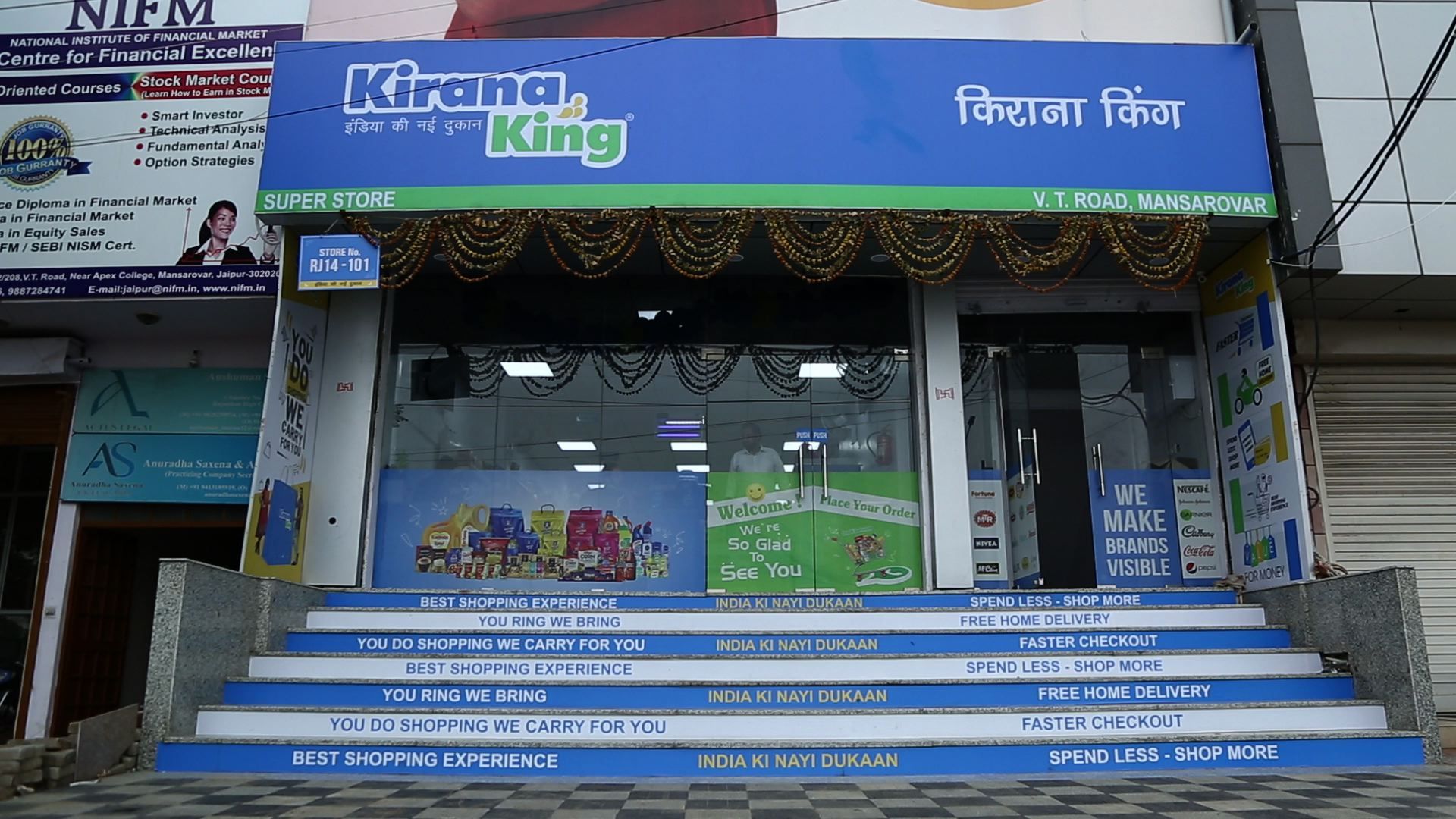Kirana King is a retail tech start-up that offers local stores to go through a complete transformation. Thus, the start-up helps local Kirana stores adorn the modern-day superstore look by improving the infrastructure, hygiene, and feel of the stores.
Indian Kirana stores are standing strong against the growing culture of the supermarkets and the hypermarkets since last two decades. But the stores are now facing a new challenge in the market from online grocery places. Therefore, the Jaipur-based Kirana King is here to help local and traditional stores to fight the growing influence of online grocery giants like BigBasket and Grofers.
Kirana King is a retail tech start-up that offers local stores to go through a complete transformation within a period of three to four days. The start-up helps them adorn the modern-day superstore look by improving the infrastructure, hygiene, and feel of the stores.
The look is not the only thing today that the customers focusing on. Customers, nowadays also look for facilities like the ease of payments and deliveries of items at their doorsteps. Therefore, Kirana King is focusing on revamping the store’s distribution channel and at the same time is also helping them to build a well-organised digital payments structure.
“Considering a list of issues throughout the supply chain, infrastructure, we created a unique ecosystem to empower the entire grocery retail ecosystem. This robust ecosystem involves the retailers, suppliers, and consumers with Kirana King as the main connecting link,” read the company’s blog.
The blog further read, “The initial results surpassed our expectations and gave us the strength to achieve our aim. It was then practically realised that ‘Changes are good for Growth’.”
Indian Kirana economy
According to ‘Kirana Transformation in India’ report by Accenture, “Retail accounts for around 11 percent of the country’s GDP which directly provides employment to over eight percent of the workforce and 88 percent of the market is unorganised.”
According to experts, the unorganised sector of the economy requires modernisation, financial access, technology, and employment upskilling to fight big online grocery retailers.
During the lockdown, Kirana stores showed their importance in running the grocery supply chain of the country. While online grocery companies were facing to ensure timely delivery, local stores managed to provide daily essentials to more than a billion people.
Kirana King retail model
Back in 2017, Kirana king started its retail operations, at first it took over a year to pilot test its ‘asset-light grocery retail business model’. During this year, the start-up transformed over 30 Kirana stores in Jaipur. Now in 2021, the company has a network of over 200 Kirana stores in the city and is planning to have 500 stores under them by year-end.
Supermarkets present in tier-1 and tier-2 cities are controlled by big corporates through the franchise model. Kirana king focus on helping the retailers who have the ownership of their stores without having to invest anything for modernising and managing the store.
Click and Collect model
The growing demand of the customers is pushing many local Kirana stores out of the picture in many cities. While online grocery companies such as BigBasket and Grofers majorly focus on timely delivery of groceries to grow their presence in the market.
Local Kirana stores are facing issues in adopting infrastructure and payment technology to provide a robust delivery model, therefore Kirana King is working on a new Click and Collect model in which customers can order from home with an option of home delivery.
Kirana King’s revenue
Kirana king invests around 75-80k to revamp a store, which includes building infrastructure, setting up digital technology, labour costs, and control the distribution channels. The revenue for the start-up comes from brand partnerships, private labels, and commissions through product promotions.
Other market players such as Walmart, ShopX, Metro, and others are looking to create pilot models to develop and modernise Kirana stores in the country to generate more income.

